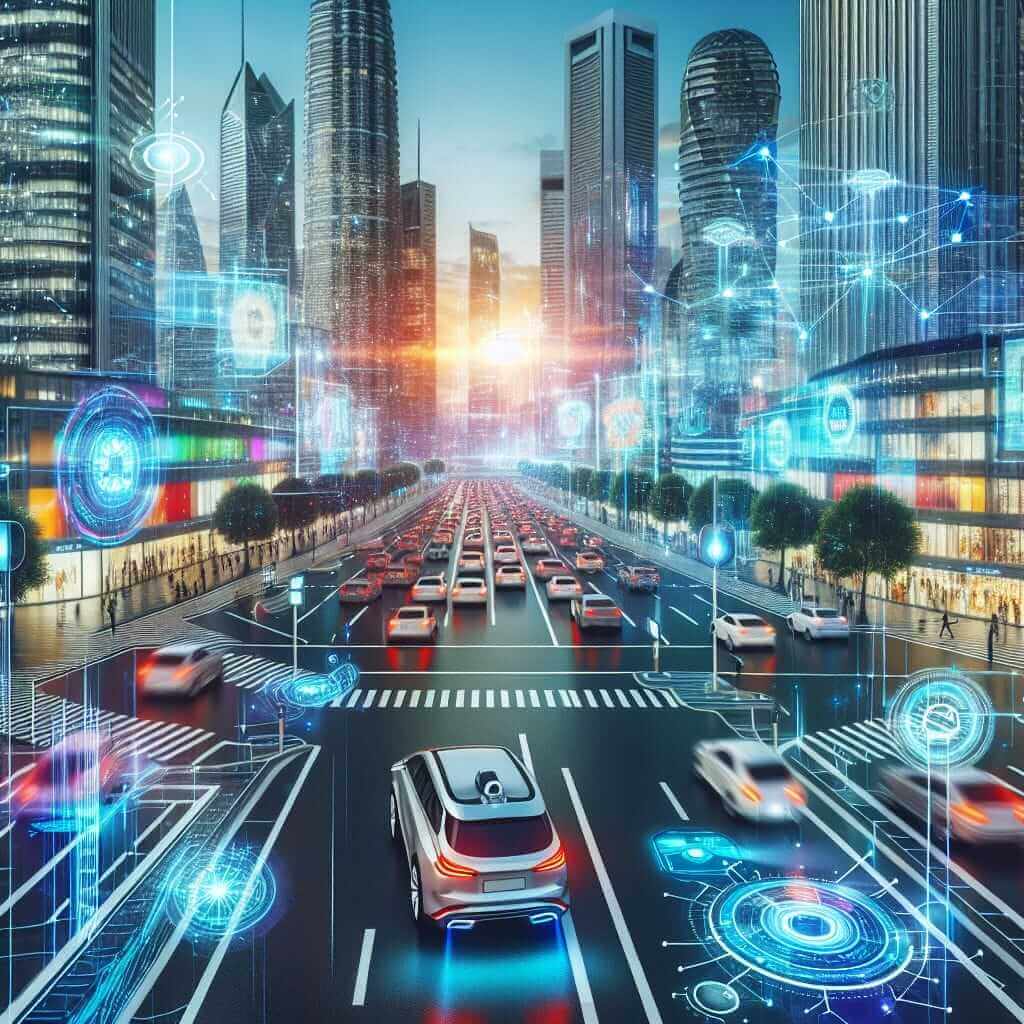The IELTS Reading section often features topics that expand on societal, technological, or scientific advancements. “How does automation influence the future of transportation?” is a relevant and intriguing topic that has appeared in various formats in past tests. This theme offers a rich area of exploration, given the rapid advancements in technology and their impacts on our daily lives. In preparing for this topic, it is essential to understand the intricacies of automation, its impact on transportation, and how these changes might shape our future. This practice test will help you prepare effectively for such themes.
Reading Passage and Questions
Reading Passage
Title: The Role of Automation in Shaping the Future of Transportation
Automation has become a driving force in revolutionizing transportation. From autonomous vehicles to smart traffic management systems, technology is redefining how we move. The core advantages of automation in transportation include enhanced safety, increased efficiency, and reduced emissions. However, these advancements also bring challenges and raise significant concerns about the future workforce, cybersecurity, and regulatory frameworks.
Enhanced Safety:
Autonomous vehicles (AVs) are programmed to follow traffic rules strictly, reducing human errors—the leading cause of road accidents. Advanced sensors and AI systems enable these vehicles to perceive the environment accurately, making real-time decisions that enhance safety on the roads.
Increased Efficiency:
Automation optimizes various aspects of transportation, from freight logistics to urban mobility. Smart traffic management systems, for instance, use real-time data to control traffic lights, reducing congestion and improving traffic flow. Additionally, automated freight systems streamline supply chains, making goods transportation faster and more reliable.
Reduced Emissions:
The environmental benefits of automation cannot be overlooked. Autonomous electric vehicles produce lower emissions compared to traditional petrol or diesel vehicles. Furthermore, efficient traffic management contributes to lower fuel consumption and reduced air pollution.
Challenges and Concerns:
While the advantages are significant, automation in transportation raises several concerns. The potential displacement of jobs due to increased automation is a major issue. Truck drivers, couriers, and public transport operators might find their roles diminishing. Moreover, cybersecurity remains a critical concern, as automated systems could be vulnerable to hacking and other cyber threats.
Regulatory and Ethical Considerations:
The implementation of autonomous technologies also requires robust regulatory frameworks. Governments must develop policies that ensure the safe integration of AVs into current transportation systems. Ethical considerations, such as decision-making in unavoidable collision scenarios, also need to be addressed.
Summary: Automation is set to transform the future of transportation by enhancing safety, increasing efficiency, and reducing emissions. However, it also poses challenges, including job displacement, cybersecurity risks, and the need for comprehensive regulatory frameworks.
Questions
1. Multiple Choice
Choose the correct letter, A, B, C, or D.
-
According to the passage, what is the main benefit of autonomous vehicles (AVs)?
- A) They are cheaper than traditional vehicles.
- B) They strictly follow traffic rules.
- C) They can drive on any terrain.
- D) They are easier to maintain.
-
What is one of the environmental benefits of automation in transportation?
- A) Reduced emissions.
- B) Increased fuel consumption.
- C) More road construction.
- D) Higher vehicle production rates.
2. Identifying Information (True/False/Not Given)
-
Automated systems in freight transportation often lead to slower delivery times.
- True
- False
- Not Given
-
The passage states that automation will completely eliminate human involvement in transportation.
- True
- False
- Not Given
3. Matching Features
- Match the following statements with the correct paragraphs.
- Potential job displacement due to automation: ___
- The need for robust regulatory frameworks: ___
4. Summary Completion
Complete the summary below. Choose NO MORE THAN TWO WORDS from the passage for each answer.
- Autonomous vehicles are equipped with advanced ____ and AI systems that help them navigate safely.
- Smart traffic management systems use ____ to improve traffic flow and reduce congestion.
Answer Key
-
Multiple Choice:
- 1: B) They strictly follow traffic rules.
- 2: A) Reduced emissions.
-
Identifying Information (True/False/Not Given):
- 3: False
- 4: False
-
Matching Features:
- Potential job displacement due to automation: Challenges and Concerns
- The need for robust regulatory frameworks: Regulatory and Ethical Considerations
-
Summary Completion:
- 6: sensors
- 7: real-time data
Analysis and Insights
Common Mistakes
A common mistake in identifying information (True/False/Not Given) is failing to distinguish between “False” and “Not Given.” Remember, something is “Not Given” if the information is not mentioned at all.
Vocabulary
Here are some challenging words from the passage:
- Autonomous (adjective): /ɔːˈtɒnəməs/ – having the freedom to govern itself or control its own affairs.
- Logistics (noun): /ləˈdʒɪstɪks/ – the detailed coordination of a complex operation involving many people, facilities, or supplies.
- Emissions (noun): /ɪˈmɪʃənz/ – the production and discharge of something, especially gas or radiation.
Grammar
Complex Sentences: Pay attention to how the passage uses subordinating conjunctions to add information:
For example: “While the advantages are significant, automation in transportation raises several concerns.”
Advice for High IELTS Reading Scores
- Practice Under Test Conditions: Simulate test conditions by timing your reading practice.
- Skimming and Scanning: Develop these skills to locate information quickly.
- Understand Question Types: Familiarize yourself with the different question types and their strategies.
- Expand Your Vocabulary: Enhance your vocabulary by reading widely and using new words in context.

Prepare diligently using these insights, and you will be well-equipped to tackle any topic the IELTS Reading section throws your way. Good luck!